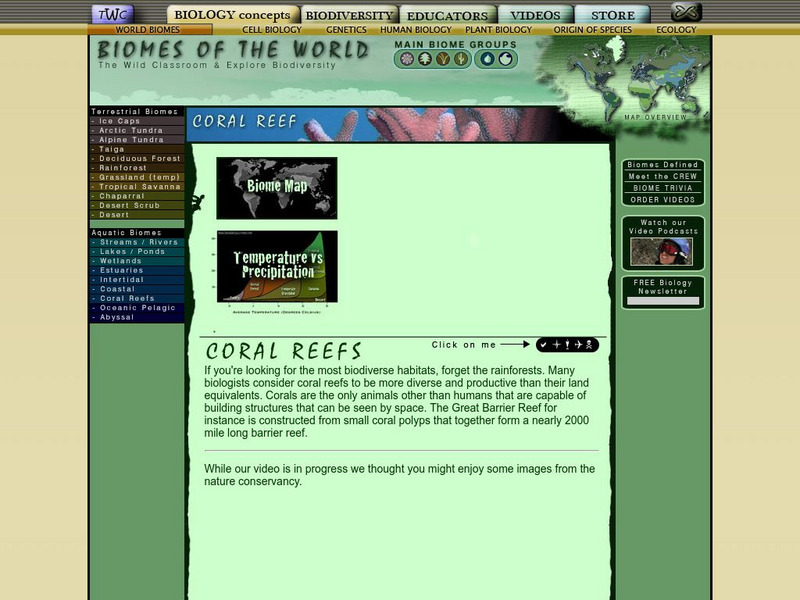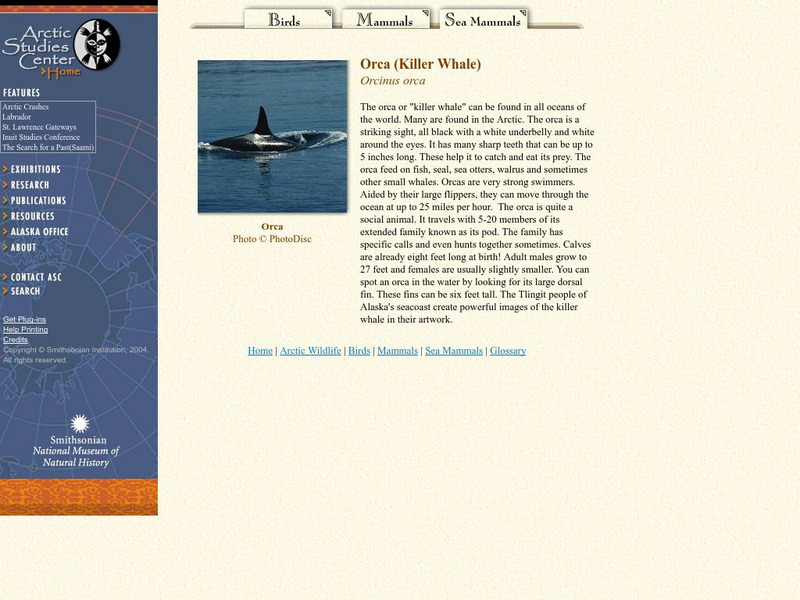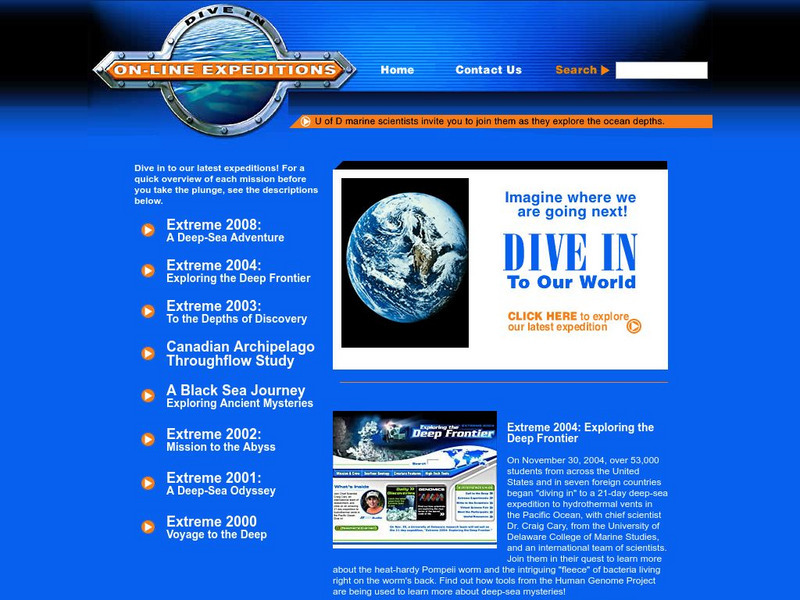Center for Educational Technologies
Nasa Classroom of the Future: Coral Reefs: Dissappearing Resource
Why are the reefs disappearing? Use this site to explore the science behind the issue. Useful at several grade levels.
Institute of Marine Science
Forsea: If I Can't See It, How Do I Know It's There?
A diagram showing features of the seafloor and a laboratory experiment involving a model of the seafloor highlight this site. This is a good resource for teachers as well.
World Wildlife Fund for Nature
World Wildlife Federation: Loggerhead Turtle
Read biological facts and conservation information about the endangered Loggerhead Sea Turtle. Find out about the main threats to the turtles and what is being down to help.
The Wild Classroom
The Wild Classroom: Biomes of the World: Coral Reef Biome
Learn about the coral reef ecosystem. Find out about plants, animals, adaptations, and conservation efforts.
Australian Broadcasting Corporation
Australian Broadcasting Corporation: Training Seals at Taronga Zoo
This site, which is provided for by the Australian Broadcasting Corporation, gives information on training seals. How do you train seals? What do they use their whiskers for? How do they walk? Click on this site and find out the answers...
Smithsonian Institution
National Museum of Natural History: Arctic Studies Center: Killer Whales
This site provides a very brief overview of the orca or "killer whale."
Wonderville Media
Wonderville: Oceanographers
The planet Earth has more ocean than land, so oceanographers have a lot to work with! Whether they study marine biology, tides, engineering, or water quality, there is always more to learn about the ocean and the life within it. While...
Australian Broadcasting Corporation
Australian Broadcasting Corporation: Monsters of the Deep: Tons of Tentacles
Read about octopuses and squids. Learn about their tentacles and other parts of the body.
TED Talks
Ted: Ted Ed: Making Waves: The Power of Concentration Gradients
The constant motion of our oceans represents a vast and complicated system involving many different drivers. Sasha Wright explains the physics behind one of those drivers- the concentration gradient- and illustrates how our oceans are...
NASA
Nasa: Climate Kids: Gallery of Oceans
A collection of images showing Earth's oceans and how they are affected by climate change.
HotChalk
Hot Chalk: Lesson Plans Page: Ocean Unit Introduction
This lesson will introduce young students to oceans by looking at the animals, plants and water temperatures for different oceans.
Other
University of Delaware: On Line Expeditions
Dive into the world of the deep sea with this website! Site includes information about the missions and discoveries made by the dive team as they explore deep sea hydrothermal vents.
US Geological Survey
Usgs: u.s. Atlantic Continental Margin Gloria Mapping Program
This site from the U.S. Geological Survey allows you to access detailed images of the continental margin around the United States. There is additional information about the sonar methods used, and a wealth of additional sources listed.
The Franklin Institute
In Quiry Almanack: Undersea and Oversee
Dive into a greater understanding of the oceans by tagging along on this exploration of the oceans.
Nature Conservancy
Nature Conservancy: Planet Earth: Oceans and Coasts
Compilation of the Nature Conservancy's content about the ecology of oceans and coasts. Emphasis is on the biodiversity of these habitats and the human impact on the animal and plant life that live in our oceans and on our coasts.
Massachusetts Institute of Technology
Mit: Open Course Ware: Evolution of Physical Oceanography
A college course featuring instructor's notes and textbook resources on the history of physical oceanography.














